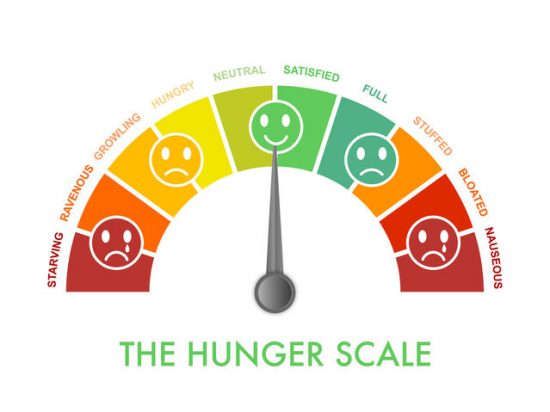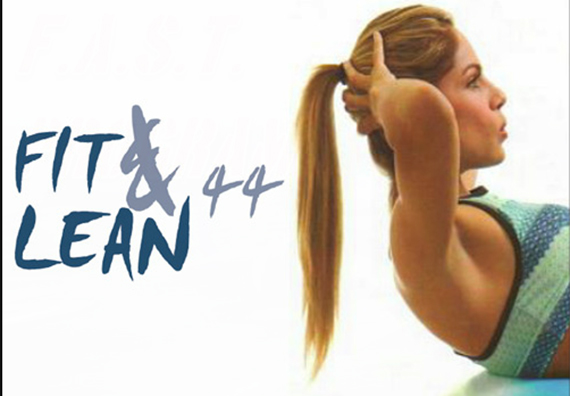Hunger is a complicated function that is influenced by not just biological factors but psychological ones as well. Because of the complicated relationship between nature and environment, controlling your feelings of hunger can be a frustrating task that makes sticking to a healthy diet more difficult than it needs to be.
Stick around for this 3 part series about the surprising day-to-day things you are doing that are making you feel hungrier than you really are and that are in turn sabotaging your waist line. And of course, tips to combat these habits!
Reason 1. You Eat Too Many Refined Carbohydrates
Does this daily menu sound familiar to you?
Cereal with milk for breakfast, a sandwich or wrap made with white bread or tortilla for lunch, chips or crackers for your mid-day snack, a dinner of pasta or pizza and a cookie or small bowl of ice cream for dessert.
If you daily menu reads something similar to this than your problem is that you are trying to fuel your body with nutrient deficient refined carbohydrates. Refined carbs such as pasta, white bread, white rice, cookies; lack any sort of fiber that helps satiate you. Another problem with the lack of fiber is the rate at which your body has to process these foods.
When we eat refined carbs our blood sugar levels spike through the roof and our bodies have to quickly work to reduce the glucose levels in our bloodstream. Removing all the sugar from our bloodstream so quickly then results in a crash, which in turn leaves the glucose levels in our bloodstream too low, thus triggering our hunger hormones to tell you to eat more carbs to raise your blood sugar levels to a safe point. It is a VICIOUS cycle!!
How to Change This Habit:
To combat this vicious cycle choose slow digestible foods that are nutrient dense and have a low glycemic (sugar) content. Carbohydrates such as brown or wild rice, quinoa, whole grains, beans, and fruit and veggies will not spike your blood sugar levels.

Reason 2. You’re Actually Just Thirsty
Research has shown that over 60% of the time that people are thirsty they incorrectly respond by eating! The reason behind this is that the same glad (the hypothalamus) regulates signals for both hunger and thirst and we often confuse these signals.
How to Change This Habit:
The next time you are feeling the urge to snack, drink a cup of water first and wait 20 minutes. If you are still feeling hungry after this than eat something. Another great waist saving tip is to drink 1-2 cups of water prior to a larger meal. Studies have shown that those who do this tend to eat 75-90 less calories per meal!
Reason 3. You Are Trying to Multi-Task.
The feeling of hunger is not the only factor that influences the amount we eat throughout a day, attention and memory play a big part. It takes 20 minutes for your brain to recognize that you are full. Because of this, if you are not paying attention and are multi-tasking while you eat – watching TV, driving, checking your phone, working at your desk – you can easily take in more calories than you need in less than 20 minutes.
Multi-tasking also does not allow us to be mindful of what we are putting into our mouths, if we do not process that fact that we are eating we do not store this action into our memory. If our brain does not register a memory of eating than we are more likely to eat again sooner than is really required.
How to Change This Habit:
Be mindful when you eat. turn off the TV, put down the cell phone, take a break from your work. Take time and enjoy your food – the flavours, colours, smells, and textures- by doing so you will find your meals more satisfying and you are less likely to overeat or snack again soon afterwards.
Reason 4. You’re Too Stressed Out!
Have you ever heard someone or seen a meme encouraging you to eat sweets when stressed because ‘stressed’ is just ‘desserts’ spelled backwards? Well there is some real truth behind behind this saying.
Many people will say that when they are stressed they actually eat less, well this is true in the short term. With acute stress – like an exam – your body produces a hormone called epinephrine (aka adrenaline) that triggers your fight-or-flight response; temporarily shutting of hunger signals. However, chronic stress – from work, kids, finances, etc.- causes the release of the hormone cortisol. Cortisol causes the body to crave carbohydrates (ie. sugar) because this increases insulin levels in the bloodstream which helps reduce cortisol levels.

How to Change This Habit:
While you may not be able to control all the stressors in your everyday life you can do things to help alleviate the effects of stress; take a bath, spend time with friends or family and control what you are putting into your mouth. Resist the temptation to binge on something sugary when feeling stressed to help break the cycle!
Reason 5. You Are Eating Too Quickly
As mentioned in Part 1, it can take up to 20 minutes for your brain to register that you are full. So, if you wolf down your entire meal in less than 5 minutes you are more than likely going to overeat.
How to Change This Habit:
When eating your meal take time to chew your food completely; put your fork down between bites; chat with your friends or family around the table; drink water between each mouthful. In short, slow down! All of these tips will allow your brain to catch up to your stomach and help keep you from overeating.
Reason 6. Your Social Media is FULL of Food Pics
Scrolling through your Facebook or Instagram can be just as bad for you waistline as actually eating sugary, deep fried, fatty treats! Seeing pictures or videos of food actually enhances our desire to eat those foods. Even if you are not initially hungry or are not in need of food these visual triggers cause our bodies to send signals to the brain prompting it to release ghrelin, a hormone associated with triggering hunger.
How to Change This Habit:
Try unfollowing some of the Instagram accounts and Facebook pages that highlight sugar laden, fatty, deep fried treats and instead follow feeds that feature healthier options.




